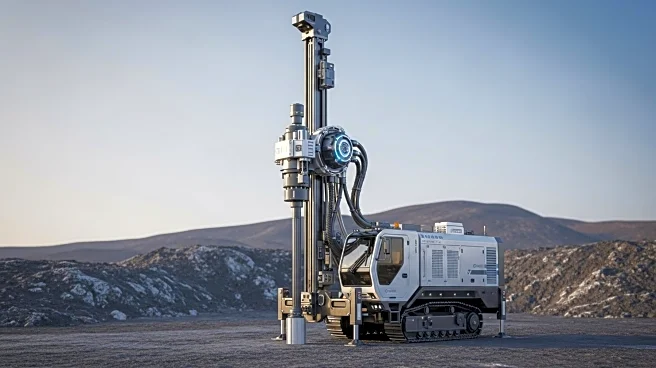What's Happening?
Dig Energy, a startup focused on geothermal technology, has developed a compact water-jet drilling rig designed to significantly reduce the costs associated with geothermal heating and cooling installations. The company, which has been operating in stealth mode for five years, recently secured $5 million in seed funding to advance its technology. The rig promises to cut drilling costs by up to 80%, making geothermal systems more accessible and potentially displacing fossil fuel-based heating systems. Geothermal energy can reduce HVAC energy use and save grid operators billions annually, but high upfront costs have limited its adoption. Dig Energy's approach focuses on shallow geothermal systems, which are suitable for residential and commercial buildings, and aims to make the technology more affordable.
Why It's Important?
Geothermal energy offers a sustainable alternative to traditional heating and cooling systems, with the potential to significantly reduce energy consumption and greenhouse gas emissions. However, the high initial costs have been a barrier to widespread adoption. Dig Energy's innovative drilling technology could transform the geothermal industry by making installations more cost-effective, thus increasing market penetration. This development could lead to greater energy efficiency in buildings and contribute to the stabilization of the U.S. electrical grid. The success of Dig Energy's technology could also stimulate further investment and innovation in the geothermal sector, driving progress towards renewable energy goals.
What's Next?
With the new funding, Dig Energy plans to refine its drilling rig and prepare for commercial pilots. The company aims to sell its devices to drillers, expanding the availability of geothermal systems. As the technology becomes more accessible, there may be increased interest from developers and building owners in adopting geothermal solutions. The broader geothermal industry could see growth as more companies explore similar technologies to reduce costs. Additionally, regulatory support and incentives for renewable energy projects could further boost the adoption of geothermal systems.









